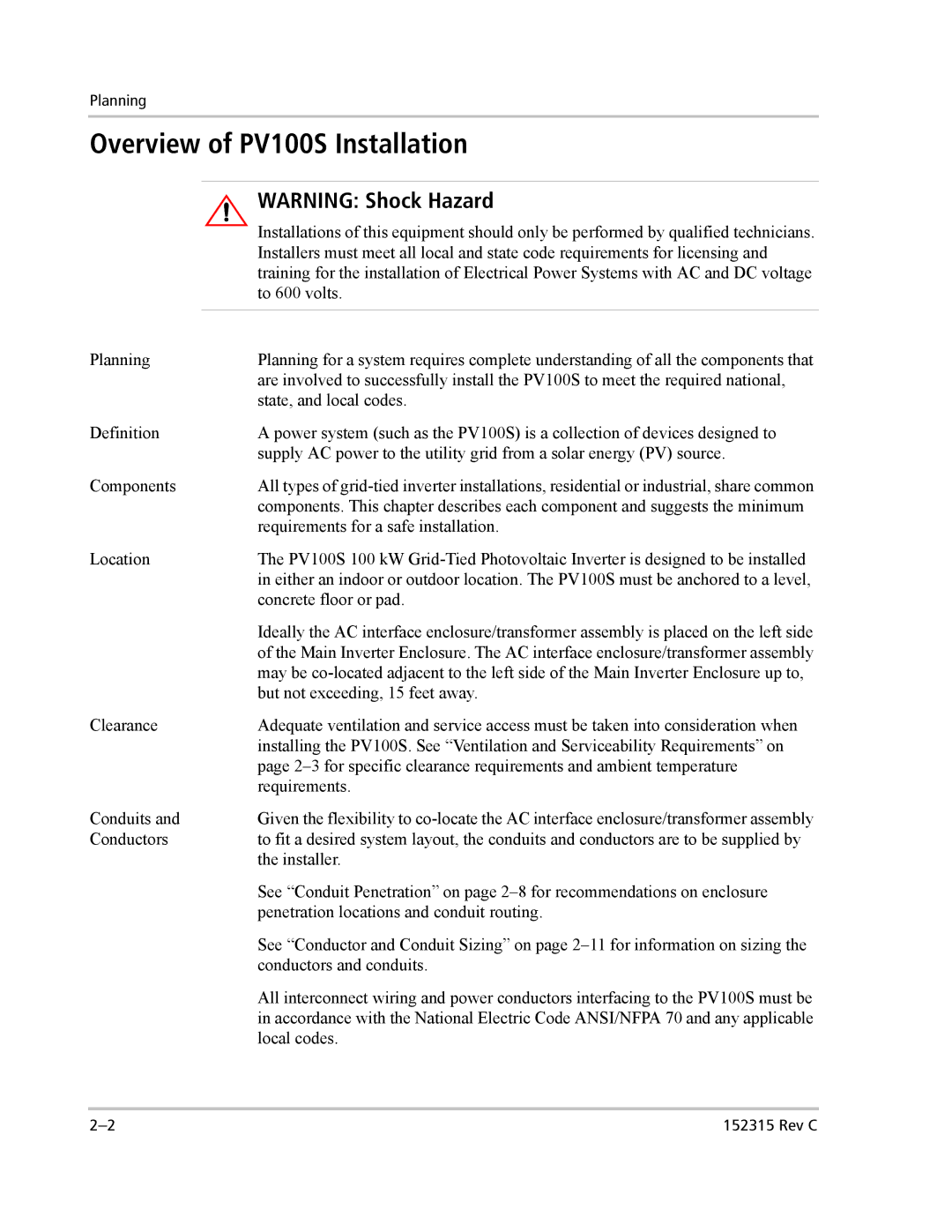
Planning
Overview of PV100S Installation
| WARNING: Shock Hazard |
| Installations of this equipment should only be performed by qualified technicians. |
| Installers must meet all local and state code requirements for licensing and |
| training for the installation of Electrical Power Systems with AC and DC voltage |
| to 600 volts. |
|
|
Planning | Planning for a system requires complete understanding of all the components that |
| are involved to successfully install the PV100S to meet the required national, |
| state, and local codes. |
Definition | A power system (such as the PV100S) is a collection of devices designed to |
| supply AC power to the utility grid from a solar energy (PV) source. |
Components | All types of |
| components. This chapter describes each component and suggests the minimum |
| requirements for a safe installation. |
Location | The PV100S 100 kW |
| in either an indoor or outdoor location. The PV100S must be anchored to a level, |
| concrete floor or pad. |
| Ideally the AC interface enclosure/transformer assembly is placed on the left side |
| of the Main Inverter Enclosure. The AC interface enclosure/transformer assembly |
| may be |
| but not exceeding, 15 feet away. |
Clearance | Adequate ventilation and service access must be taken into consideration when |
| installing the PV100S. See “Ventilation and Serviceability Requirements” on |
| page |
| requirements. |
Conduits and | Given the flexibility to |
Conductors | to fit a desired system layout, the conduits and conductors are to be supplied by |
| the installer. |
| See “Conduit Penetration” on page |
| penetration locations and conduit routing. |
| See “Conductor and Conduit Sizing” on page |
| conductors and conduits. |
| All interconnect wiring and power conductors interfacing to the PV100S must be |
| in accordance with the National Electric Code ANSI/NFPA 70 and any applicable |
| local codes. |
152315 Rev C |
